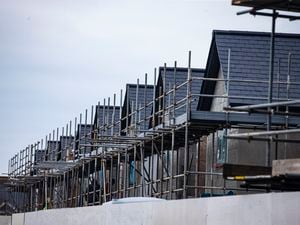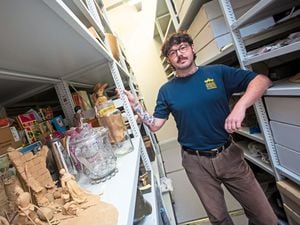Cancer sufferer pushes States for asbestos compensation
PRESSURE is growing on the States to introduce an asbestos compensation scheme to end what victims say is years of injustice.

Two years ago, Ian Goodwin, who has mesothelioma – an asbestos-related cancer – was given three years to live.
Last year he set up a local support group to provide information and help to patients and their families.
‘It’s a terrible disease with difficult symptoms and there’s a very poor life expectancy,’ he said.
‘It can be dormant in the body for decades and then people who develop mesothelioma are likely to be dead within three years.
‘It’s not just the workers exposed to asbestos dust who are at risk, families are often affected because of exposure to dirty work clothes.’
Mr Goodwin believes it was when he was working as a mechanic and storeman at the former Le Riche’s Cash and Carry in the Bouet that he came into contact with asbestos fibres.
He has been campaigning for a States compensation scheme for victims who cannot get a settlement from a liable employer or insurer.
He has been frustrated with the lack of progress from the States.
‘I’ve had meetings with the president and chief executive of Employment & Social Security to try to resolve the situation, but they said they didn’t have the resources or the staff.’
Deputy Matt Fallaize put questions to the ESS committee in the States last week and wants the committee to include proposals for a compensation scheme in its annual uprating report in the autumn.
If it does not, he said he would force the issue with an amendment.
‘Although I am disappointed that the committee has not made progress on setting up a scheme more swiftly, I do not in any way doubt the committee’s good intentions in this area.
‘What is needed is for the States to inject some pace and purpose into the preparation for such a scheme.’
Asbestos was wholly banned in the UK in 1999, but it had been widely used in the decades before, especially in flooring, ceiling and roofing tiles.
It is unclear at this stage how many people would be able to benefit from a Guernsey compensation scheme.
Mr Goodwin was told that between 2008 and 2015 there were 10 cases of asbestos-related illnesses recorded at the hospital, but he suspects that there could be many more people who are ‘under the radar’.
An asbestos compensation scheme was established in the UK in 2013 and Jersey is hoping to have its scheme set up this year.
ESS president Michelle Le Clerc said her committee recognised the need to move this important work forward.
‘But the reality is we have limited resources and we have to make incredibly difficult decisions on what work to prioritise.’
However, Deputy Le Clerc wanted to give hope to asbestos victims with a commitment to some progress within this political term.
‘We need to investigate further the compensation scheme offered in the UK, funded by the major insurance companies, to see if we might be able to participate.
‘In addition we are also aware that Jersey expect to launch a scheme in the autumn and depending upon the details and how that scheme might operate, it may be possible to speed up the process by mirroring their scheme.’





